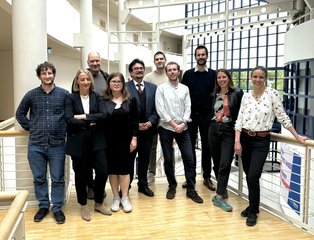How does political violence affect democracies? Leading academics discussed this question at the end of May at the UW/H. The occasion was a workshop of the DANGER project, which is funded by the European Research Council (ERC).
Lessons from the interwar period
The project investigates whether political violence can trigger the collapse of democratic systems and how political elites react to anti-democratic forces - with a particular focus on the interwar period in Europe (1919 - 1939). Using historical data and computer-aided methods, the project team is developing models to assess risks for contemporary democracies.
Impulses from all over Europe - and from UW/H
High-caliber guests contributed impulses: Ursula Daxecker (University of Amsterdam), Stathis Kalyvas (University of Oxford), Andrea Ruggeri (University of Milan) and Christina Zuber (University of Konstanz / EUI). They presented new research on violence, conflicts, authoritarianism and the challenges for democratic systems.
DANGER project leader Prof. Dr. Nils-Christian Bormann presented recent publications in high-ranking journals, including a comprehensive dataset on parliamentary cabinets of the interwar period. Doctoral students from UW/H also took the opportunity to present their projects - and received honest, helpful feedback.
Old patterns, new threats
The discussions made it clear that radical right-wing ideologies - once explosive for democracies - are dangerous again today. In light of current democratic backsliding, these historical lessons are particularly relevant at present. History serves as a reminder - and provides tools for understanding the present.
